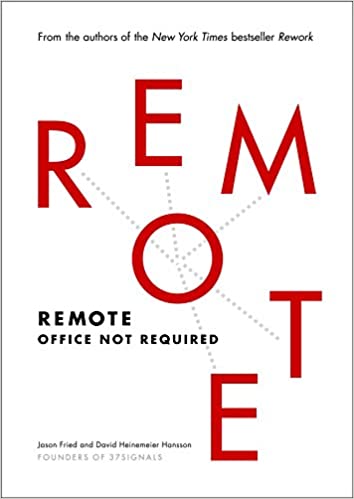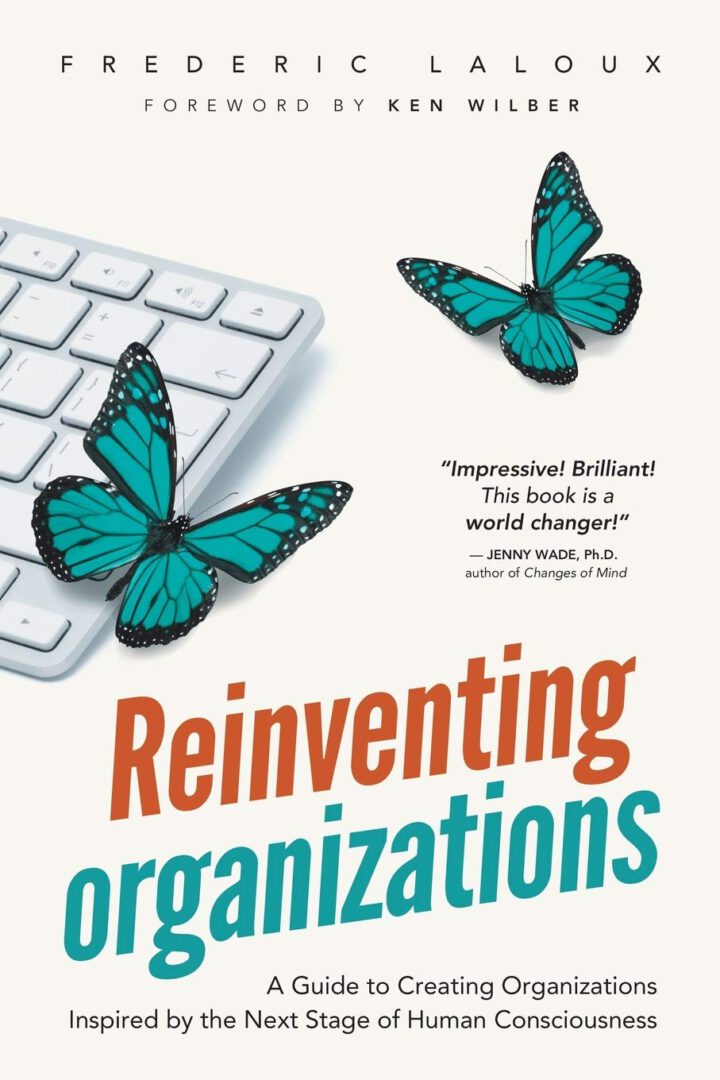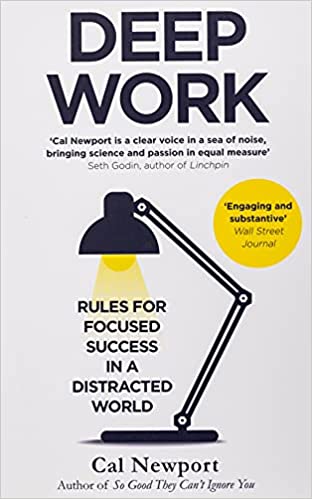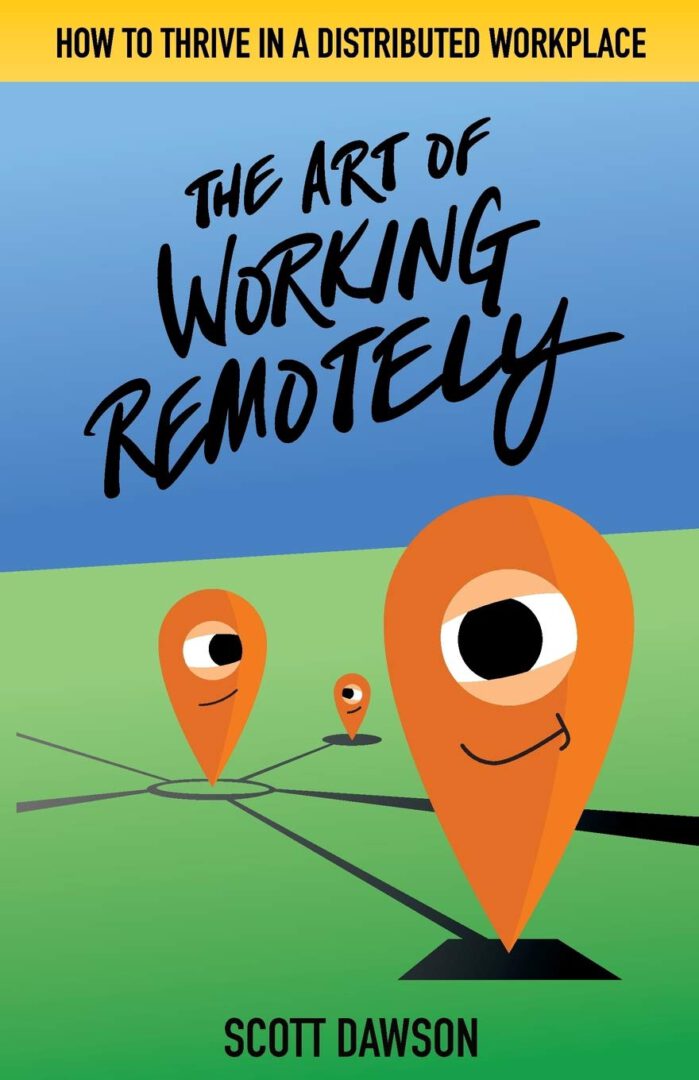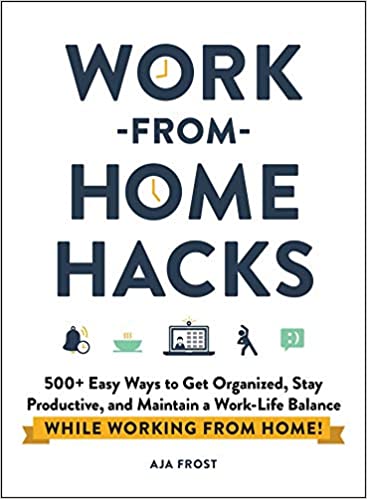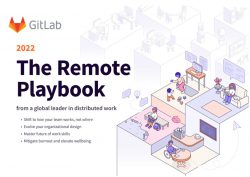Your support helps keep the site running! We recommend books and products we believe in. Some of the links on this page are affiliate links, which means we may earn a commission if you purchase through these links. Read our affiliate disclosure.
You will probably find many people writing about remote work and its challenges or not. I think it’s great, but it’s not for everyone.
Many books on remote work exist, and most aren’t very good. The best way to understand and feel remote work is by working with a remote company. But not all of us are in that position.
Below, I will list all the resources I have found so far, which include books and company-specific operational wikis.
They are useful for:
- People who want to be remote and are currently working in a company that isn’t.
- People who want to be remote but are currently unemployed.
- People who want to be remote but aren’t sure how to manage everything they do while working in a company.
- People who already work remotely would like to compare their habits with those of others.
Have fun 🙂
Popular Books about Remote Work
First, the caveat. The books I have below fall in a few traps.
Most of those books were written before COVID.
- Some writers are very dogmatic, or provide broad advice that could apply to in-person teams.
- It can be difficult to identify what pitfalls remote work may have.
The following are some (of my) favorite books that I’d like to recommend. I will also mention books I found disappointing (while they might have great reviews on Amazon).
How about we jump right into the best business books I’ve read, along with free resources?
Remote: Office Not Required
The first book recommendation is Remote: Office Not Required by Jason Fried and David Heinemeier Hansson. This is probably one of the best books I’ve read on working remotely. If you know Jason Fried from Rework, then you shouldn’t expect to get tactical; instead, it should help you cross the remote work vs. collocated work. In my work, I have talked with many colleagues and other founders who are still on the fence about the benefits.
Productivity is the goal here. Many remote teams have learned the importance of coordination about time zones. They also cover two really important topics (in my opinion) – cabin fever and loneliness.
What We Like Less:
In all honesty, I like Jason’s writings so there is nothing to be disliked with this book. You may probably object to the writers’ viewpoint on remote work as overly focused on the positives and being rather one-sided.
Why You Are Going to Like it:
With that being said, if you’re looking for tactical advice on how to work on a distributed team, you won’t find too much of it in this book.
For people that are currently working away from the office, this book is an encouragement to stay engaged. But it’s also for those who are thinking about coming up with creative solutions for remote work, as this is a game-changer.
The Year Without Pants: WordPress.com and the Future of Work
Another book recommendation is The Year Without Pants by Scott Berkun. I like this book as it tells Scott’s personal story about his year working remotely at Automattic – makers of WordPress and one of the largest fully distributed companies in the world.
Although the book was written in 2013, it refers to some outdated tools, but it is a light read with practical advice. For example, there is extensive coverage of the importance of written communication and Automattic’s tool called P2 (still used).
This is a snapshot from Automattic’s website: “This isn’t your typical work from home job. Everyone works from the location they choose. We’re spread out all over the world in 96 countries. We track about 70 percent of our projects on P2-themed WordPress.com blogs, 25 percent in private chat rooms, and the rest on Slack. Because of the geographic variance, we’re active 24/7. We care about the work you produce, not just the hours you put in.”
If you want the most current “operational manual” on how Automattic works, look at the official Automattic – How We Work.
What We Like Less:
The part that it is not current enough. You may also dislike the book’s lack of practical guidance and ideas in favor of focusing on the author’s own experiences and insights.
Why You Are Going to Like it:
It is a personal story that you may feel connected to. The behind-the-scenes look at a successful remote team, as well as the insights into the challenges and benefits of remote work, will resonate to you.
If you want the most current “operational manual” on how Automattic works then have a look in the official Automattic – How We Work.
Reinventing Organizations: A Guide to Creating Organizations Inspired by the Next Stage in Human Consciousness
Laloux with Reinventing Organizations: A Guide to Creating Organizations Inspired by the Next Stage of Human Consciousness dives into the notion of “teal organizations,” which are self-managing, agile, and purpose-driven companies founded on a new stage of human consciousness.
What We Like Less:
The book concentrates on organizational theory and that it can be rather abstract.
Why You Are Going to Like it:
The insights into the ability for companies to change and the practical suggestions for establishing more human and productive organizations.
Rework
Rework is a game changer for entrepreneurs who want to break the norms and rethink their company model. Fried and Hansson give a unique and controversial take on entrepreneurship in this book, as well as practical techniques for developing a successful and sustainable firm. With chapters on delegation, time management, and decision-making, this book delivers useful insights and ideas that may help entrepreneurs defy the status quo and build a firm on their terms rather than the norms of the old economy.
What We Like Less:
Rework’s counsel is somewhat controversial and contradicts common thinking.
Why You Are Going to Like it:
You will appreciate the plain and no-nonsense approach to business.
Deep Work: Rules for Focused Success in a Distracted World
This next book recommendation isn’t specifically about working remotely, but it’s very relevant to life as a distributed employee. Deep Work, by Cal Newport, is a wonderful book that discusses the importance of uninterrupted, focused time to produce a high-quality product. Remote work is ideal for this. Newport believes deep work can help you master hard things quickly and perform at a high level. And he thinks that those skills will be key to success in the coming decades. The book is organized into two sections: the idea of deep work and how to do more deep work.
What We Like Less:
The book is probably a bit longer than it needs to be. I would also prefer more tactical and business examples.
Why You Are Going to Like it:
You will probably like the tactical part of it. The most tactical chapter was when the author discusses how important rituals are. You’ll read how to plan your day and end it on a high note with an end of day ritual. The author also talks about how to make sure your work stays at work and how to deal better with your email inbox.
The Art of Working Remotely: How to Thrive in a Distributed Workplace
This book provides a step-by-step guide to establishing a successful remote work career, covering topics such as selecting the perfect employment and setting up an efficient home office, as well as managing your time and keeping motivated.
What We Like Less:
The book is geared toward people looking to start a remote work career and may not be as applicable to those who are already experienced remote workers.
Why You Are Going to Like it:
You will appreciate the clear and concise advice for getting started with remote work and the practical tips for overcoming common challenges.
Work-from-Home Hacks: 500+ Easy Ways to Get Organized, Stay Productive, and Maintain a Work-Life Balance While Working from Home!
When Aja left to work remotely due to COVID-19, she thought we would be back soon. Who didn’t? Since then, everything changed, and Aja packed all the advice she wished she’d had when she transitioned to permanent remote work. The book covers situations, such as maintaining boundaries between work and the rest of your life (yeah, that’s tough, especially when you have kids).
What We Like Less:
If you are a collector of hacks and tasks then this is for you. I was overwhelmed a bit.
Why You Are Going to Like it:
The book is designed to be easy to read and implement, the hacks are clearly laid out and most can be put into practice quickly. When you finish, you’ll probably wish you had this book at the beginning of the quarantine.
Free and Awesome resources and Playbooks about Remote work
As more businesses move to remote work, there is a multitude of free tools available to assist startups, scaleups, and other businesses in making the shift to remote work seamlessly and profitably. These materials, which range from guidelines and playbooks to tools and templates, may give useful insights, guidance, and assistance for businesses wishing to embrace remote work and create a successful and sustainable remote work environment. Whether you are new to remote work or want to enhance your current remote work habits, there is a variety of free tools available to help you flourish and prosper in a remote work world.
In this part, we’ll look at some of the best free remote work resources, such as manuals and playbooks, tools and templates, and communities and forums. Each tool may offer vital advice and direction to businesses wishing to embrace remote work and create a successful and sustainable remote work environment. There is a free resource that will help you flourish and achieve in a remote work world, whether you are a startup, scaleup, or existing organization.
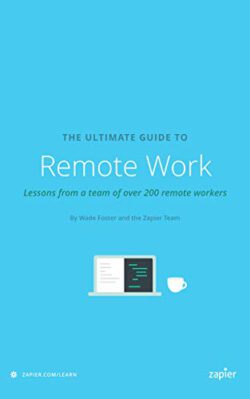
Title: The Ultimate Guide to Remote Work: How to Grow, Manage, and Work with Remote Teams (Zapier App Guides Book 3)
Author: Wade Foster
The Ultimate Guide to Remote Work by Zapier (free)
This is more an ebook / Kindle edition than a physical book, but it is super-relevant and highly recommended to read.
Zapier is a fully distributed company, and the book (written by Zapier’s founder Wade Foster) is tactical, up-to-date, and with the trenches remote work experience.
The stories described will make you feel that you were/are there in the moment, and the no-fluff advice will give you tactics to apply tomorrow.
Did I say it’s free? Get the Kindle edition from Amazon or read it online here.
You may also have a look at Transitioning to remote work in a hurry by Zapier.
Remote Playbooks from Gitlab (free)
Gitlab is a world leader in remote work.
These playbooks are must reads for anyone looking to work remotely or WFH.
Remote work emergency plan: What to do (and where to start)
Many employees and employers are facing a new reality: they’re remote. As such, they’re unsure when they’ll be able to return to the office. This playbook is for leaders suddenly managing work-from-home teams; there are five things you can focus on right now to maximize stability.
Remote work starter guide for employees: how to adjust to work-from-home (GitLab)
For many people, the preferred workplace is a home office. Of course, not all remote workers make their offices at home – but the majority do.
“Remote work from home” is any work performed in an individual’s home on behalf of an organization that may or may not have physical offices. Check this WFH playbook.
Remote Work Guide by shogun (free)
Shogun has been a fully distributed team since its inception in 2015. What started as a way to cut costs quickly became one of the best business decisions they ever made.
This guide contains the lessons they’ve learned to help you build an effective remote team.
If you want some insights into how Shogun built a remote company, then check out this resource. These are the three main parts of putting together the business, including processes and tools they use: The 3 pillars of building a remote team.
Hubstaff – No Excuses: The Definitive Guide to Managing a Remote Team
“No Excuses: The Definitive Guide to Managing a Remote Team,” by Hubstaff co-founder Dave Nevogt, is a must-read booklet. It takes readers through the challenges and rewards of developing a remote workforce from the perspective of a company’s founder, giving useful ideas on how to manage a remote staff, establish efficient communication channels, and foster trust and loyalty. In addition, the book discusses how to encourage remote teams, monitor productivity, and assess performance.
It discusses themes such as creating a successful onboarding process, best practices for remote meetings and cooperation, and improving productivity by leveraging tools and technology. The book also discusses how to deal with obstacles, manage time differences, and ensure everyone on the team is on the same page. This thorough guide will provide managers with the skills and information they need to effectively manage their remote teams from the perspective of a company’s founder and put their team up for remote success.
Mattermost Handbook
Mattermost is an open-source, remote-first, communities-centered company based in Palo Alto, California, and headquartered on the internet. They are remote-first – that means most of their staff works from home, coffee shops, and other personal areas rather than at a shared corporate office location.
This is their Handbook, and it’s free for the community to read.
Check this out on Mattermost
Other – from the trenches – resources
What we’ve learned from 7 years of running a worldwide remote design team
Back in the halcyon startup days of 2014, SketchDeck founders Chris Finneral and David Mack were frantically trying to design all the presentations being sent to the company, and in-between PowerPoint marathons trying to hire additional staff.
Unsurprisingly, the best talent didn’t all live within 20 miles of our laptops. We started looking more broadly for our first crew of visual virtuosos.
This is their remote work story.
19 Foundational Tips for New Remote Managers from Olark
Almost anyone can work from home successfully a few days a week (or even for a week!), but when weeks turn into months, the tactics and processes you developed working in an office break down for remote teams.
Ben Congleton of Olark wrote this guide along with his team because of how they run their remote company for over ten years and know how hard the transition can be.
From face-to-face management to remote management, from in-person employee to remote employee.
Before you go…
Before you proceed, read our article on Strategy and Negotiation books. Because of the pandemic’s growing need for remote work, it’s critical to comprehend the methods and tactics required to thrive in a virtual setting. You can ensure your remote staff is functioning to its maximum capacity with the correct strategy and negotiating skills.

